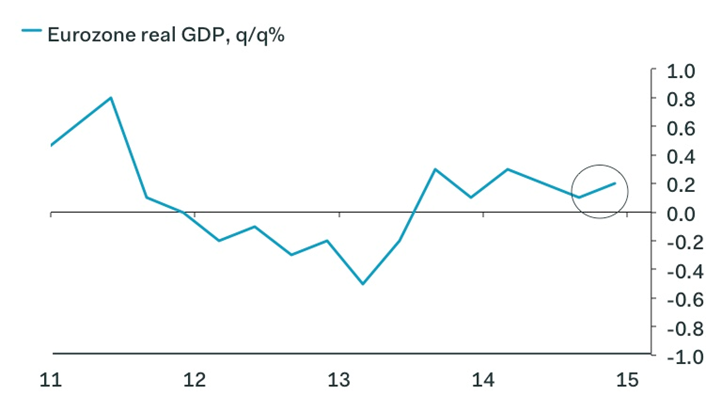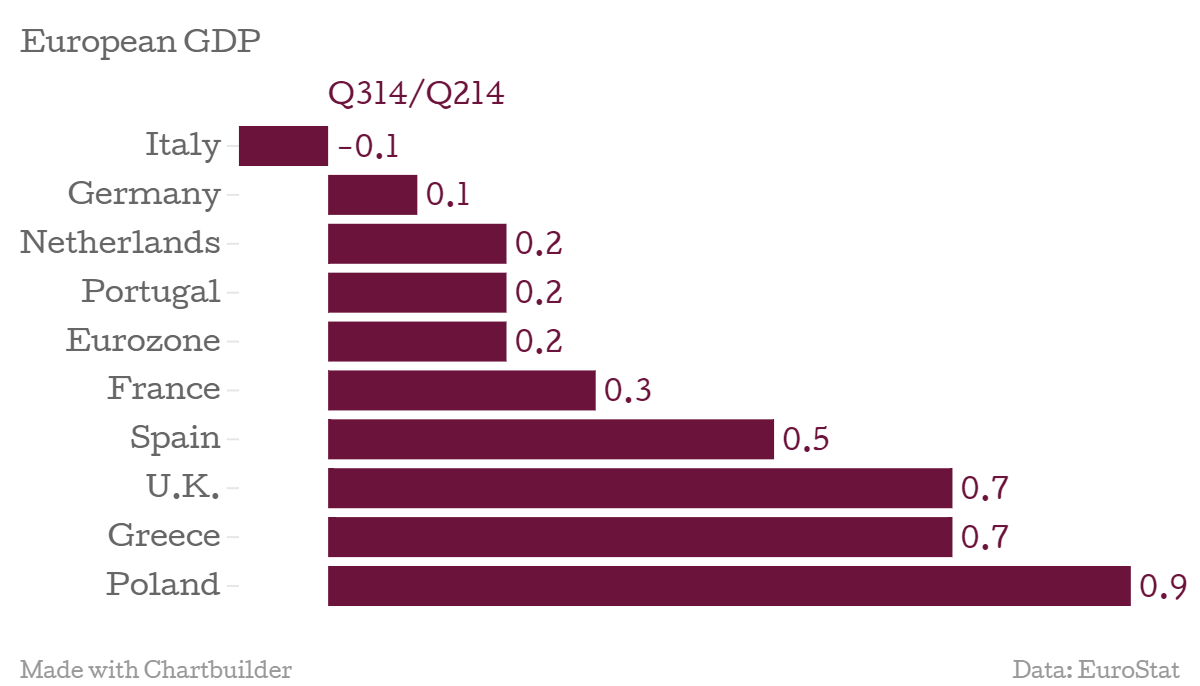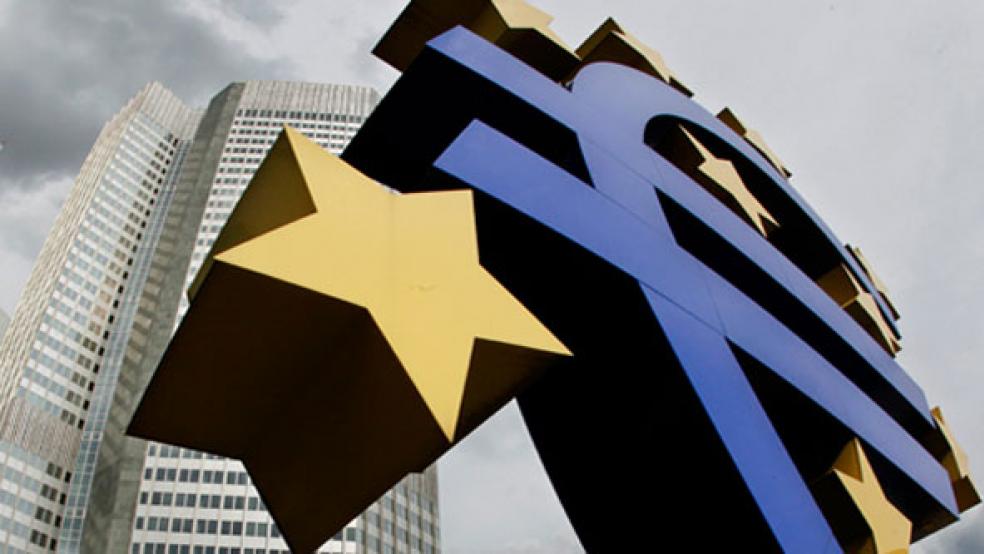About the best thing you can say about the Eurozone economy is that it’s not in recession.
Real GDP in the region rose 0.2 percent in the third quarter, just a tick better than the 0.1 percent economists had expected, according to the first estimates released Friday by EuroStat. As weak as that growth was, it’s also slightly better than the revised growth rate of 0.1 percent in the second quarter of the year. Compared with the same quarter in 2013, the Euro area economy has grown 0.8 percent.
Related: Why America Voted Against Obama’s Economy
“Growth in the euro area is still very low, but a slight beat of the consensus and an upward revision to last quarter’s data indicate that the economy is further from recession than a gloomy consensus was expecting,” Claus Vistesen, chief Eurozone economist at Pantheon Macroeconomics, wrote Friday, providing the chart below to illustrate the point.

Germany
The German economy, the largest in the Eurozone, grew 0.1 percent in the most recent quarter after contracting by roughly the same amount in the previous three months. “In other words, Euroland’s dominant economy has not grown at all in six months,” Carl B. Weinberg, chief economist at High Frequency Economics, said in a note to clients. For now, though, it looks as if Germany has avoided a triple-dip recession.
France
French GDP expanded by 0.3 percent quarter over quarter, slightly better than economists had expected — and the best quarterly growth since 2011. The details of the report were less encouraging than the headline though, as the growth was helped by a rise in government spending and companies replenishing their inventories. Investment spending, meanwhile, shrank by 0.6 percent as the private sector in France still appears mired its post-crisis malaise.
Related: Two New Signs the U.S. Economy Really Is Getting Better
Italy
Italy is technically back in recession, with GDP shrinking for two consecutive quarters after coming in flat over the first three months of the year. Italian GDP fell 0.1 percent in the third quarter and by 0.2 percent in the second quarter. Italy’s GDP has not grown for 13 straight quarters.
Greece
By contrast, the recession in Greece just ended after nearly six long years. Greek GDP growth accelerated to 0.7 percent quarter over quarter, up from 0.3 percent. The Greek economy grew by 1.4 percent from the third quarter of 2013 to the same period this year.
Others
Poland’s GDP grew by 0.9 percent, best among Europe’s seven largest economies. The U.K. expanded by 0.7 percent and Spain saw 0.5 percent growth. See the full table below.

The bottom line: Europe isn’t in recession, but it also still isn’t growing much. “No one can look at this report and call Euroland’s economy anything better than stagnant,” Weinberg wrote.
Top Reads from The Fiscal Times:





